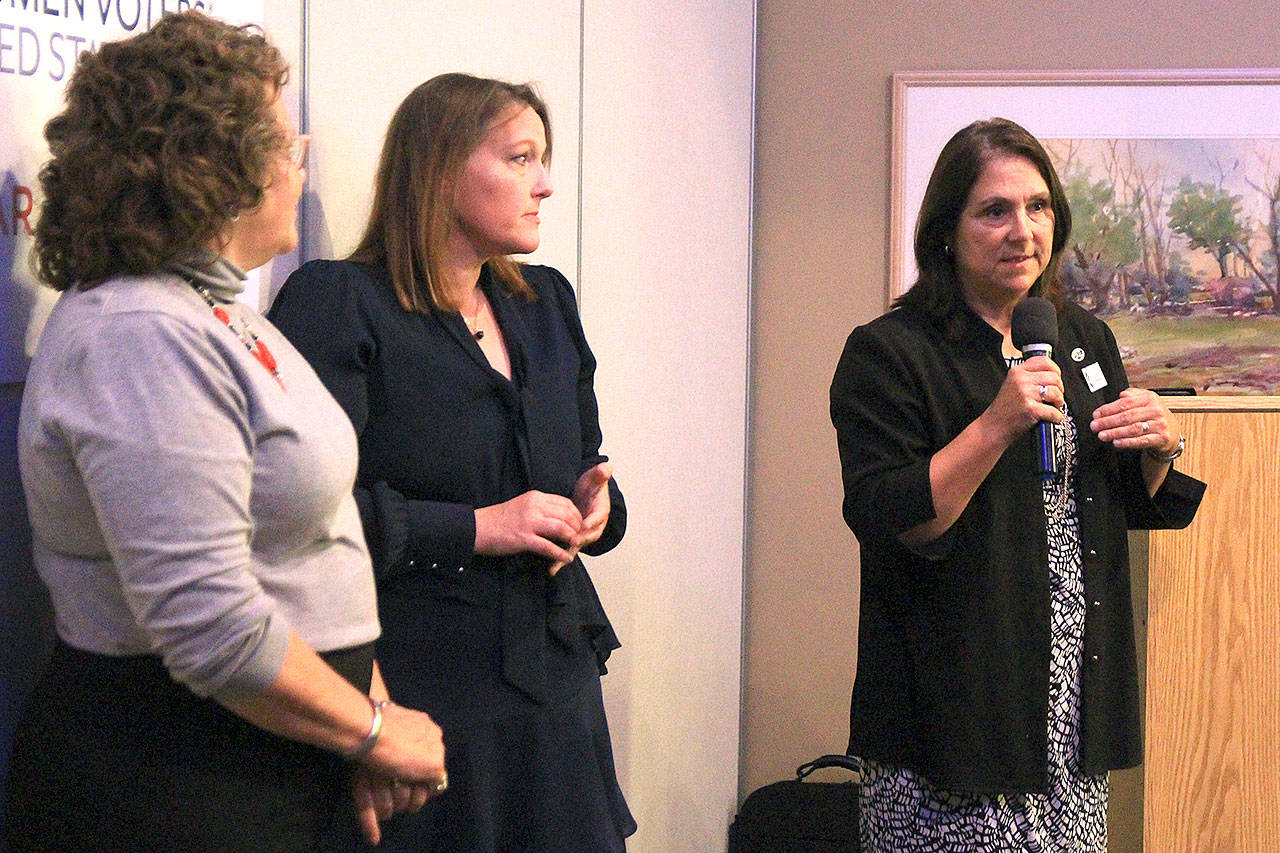Island County commissioners are uncertain about the future of recycling and how it will look on Whidbey if markets don’t improve for the materials.
The Board of County Commissioners spoke Thursday night at an annual League of Women Voters dinner event about a range of topics including the environment, behavioral health and housing.
Cost of recycling is becoming more of a concern because of the expense of hauling it off island now that there isn’t much income from the materials, according to Commissioner Jill Johnson, who sits on the solid waste advisory board. Residents don’t pay separately for the service, and the bill is covered by the garbage rates, which the county hasn’t raised in more than a decade.
The county’s solid waste management plan calls for a rate study in 2021.
The board was also questioned on its efforts to address climate change, especially regarding carbon dioxide emissions. Commissioner Helen Price Johnson said the county has made strides, but she’d like to revisit actual monitoring to see if improvements have added up.
The women also discussed statewide systematic changes to mental and behavioral health care. The region recently adopted integrated care, which means physical and behavioral health are combined, for its Medicaid patients. All counties are required to make this change by the end of 2020.
The model shifts how Medicaid funding flows into communities, Johnson said, which has raised some concerns over how some of the services will be provided.
“Hopefully, you won’t see changes in levels of service,” she said. “But in reality there are some tensions that we’re watching.”
She and Price Johnson also discussed the crisis stabilization center slated for construction in Oak Harbor. The ground breaking for the 10-bed, short-term stay facility will happen in October. They said the center’s services, which will be delivered by a health care provider, are needed after the closure of nearly all the civil beds at Western State Hospital.
Price Johnson said it should also divert some people from the jail and emergency rooms when mental health or chemical dependency treatment is needed — a comment that was met with applause from the audience.
“That is a much better way to spend public dollars, it’s also a much more humane way,” she said.
Commissioner Janet St. Clair lauded the relatively new program in which a social worker is embedded with the sheriff’s department and Oak Harbor police. She and Johnson talked about how the partnership uses law enforcement’s knowledge of where high-need people are and what their history is with the social worker’s expertise in identifying needs and providing appropriate resources.
St. Clair said looking ahead, she’s focused on how the county can grow sustainably. She said some population growth is inevitable, but it will be important to protect water quality of the aquifer and take into account sea level rise.



